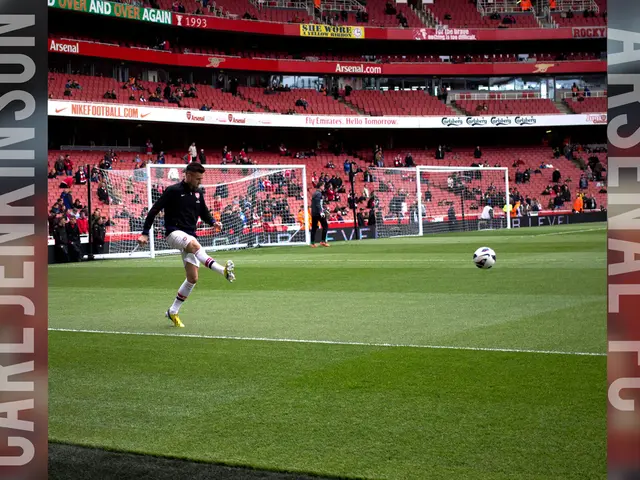Analysis of Taiwan's Reputation in Central Europe
China's Propaganda Efforts in Central Europe: A Mixed Response
The Central European Institute of Asian Studies (CEIAS) has recently released a report titled "Echoes and Resistance," examining China's propaganda efforts in the Czech Republic, Hungary, Poland, and Slovakia since 2013 [1]. The report suggests that while China maintains a notable social media presence, its influence on public opinion is limited and often countered by entrenched domestic skepticism.
According to the report, people in the region do not tend to accept China's delineation of its 'core interests', including its stance on Tibet, Xinjiang, Hong Kong, and Taiwan [2]. However, the specific narratives pushed by China in each country are not detailed in the report.
The report finds that public attitudes toward the People's Republic of China (PRC) in these countries are generally negative or non-committal, with many participants choosing neutral responses [1]. This negative sentiment is influenced more by domestic political, cultural, and historical factors than by direct Chinese influence or propaganda.
Chinese state media and influencer efforts tend to avoid politically sensitive topics and focus instead on spreading generally “positive energy” content, which struggles to engage broad audiences in the region [1]. Controversial issues like China’s policies on Taiwan and others are rarely discussed on their own merit in Central European public discourse. Instead, China is often used as a rhetorical tool domestically to critique perceived Western failings, including those of the US and the EU.
The report does not discuss the impact of Chinese propaganda on the economic relations between these countries and China. Similarly, the role of parliamentary groups in shaping public perceptions of China in these countries is not a focus of the report.
The formation of the Inter-Parliamentary Alliance on China was keyed by the advantages of parliamentary groups. These groups have more flexibility and independence, and can initiate studies, pass resolutions, and send delegations to visit Taiwan [3]. Parliamentary groups are more willing to intervene on human rights issues but more reluctant in complex territorial disputes.
The PRC is working to forge a narrative about itself and its intentions to the international community. However, the report does not specify the exact percentage of strong acceptance or outright rejection of Chinese propaganda in each country. The report also does not discuss the specific methods used by Taiwan to counter Chinese propaganda in these countries.
In summary, the current public perception of China in Central Europe remains largely negative, with Czechia holding the most unfavorable views and Slovakia the most positive—though negative assessments still outnumber positive ones across all these countries. China is often framed within local political narratives rather than on its own terms. Controversial issues like Taiwan are not central to popular discussions but contribute to overall skepticism through the lens of broader geopolitical tensions. Chinese media efforts have limited success influencing public opinion, especially among more educated and liberal populations in Central Europe.
References: [1] Central European Institute of Asian Studies (CEIAS) (2022). Echoes and Resistance: A Study of China’s Propaganda Efforts in Central Europe. Retrieved from https://ceias.sk/en/echoes-and-resistance [2] Radio Free Europe/Radio Liberty (2021). China's Ambiguous Position On Ukraine Exacerbates European Mistrust. Retrieved from https://www.rferl.org/a/china-ukraine-war-europe-mistrust/31300453.html [3] Central European Policy Institute (2020). The Role of Parliamentary Groups in Shaping Public Perceptions of China in Central Europe. Retrieved from https://www.cepi.sk/en/the-role-of-parliamentary-groups-in-shaping-public-perceptions-of-china-in-central-europe/
Read also:
- Proposed Standardization of Food Labeling Laws Among Member States by the Commission
- Experimenting with Merz's Germany has stretched into an extended period of time, resembling a numerous three-month duration.
- Moderate discussions scheduled between U.S. President Trump and India's Prime Minister Modi next month, according to recent reports.
- Review of Smithsonian museums and displays conducted to guarantee compatibility with Trump administration decree








